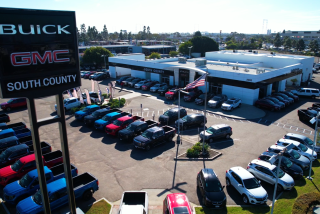Brazil’s Woes Depress Car Sales
- Share via
SAO PAULO, Brazil — The economic woes of Brazil have sent auto sales plunging and the impact is being felt in the United States and Europe, where manufacturers have recently come to count on the high growth and profits produced in the region, the world’s eighth-largest car market.
Predicting that Brazil’s automobile sales will fall 17% next year, Merrill Lynch said Monday it expects the slump, combined with the lesser impact of Southeast Asia’s own set of problems, to cost General Motors Corp. and Ford Motor Co. up to 70 cents per share in profit next year.
Meanwhile, economists warned that Brazil’s 51-point austerity program--designed to avoid devaluation and keep inflation in check--had better work quickly or the social and political costs of slower economic growth could doom the reelection bid of President Fernando Henrique Cardoso, architect of Brazil’s economic resurgence.
“These measures mean the economy will grow only 1% to 1.5% next year while the labor force is growing 4%. So millions of people will be going to the labor force and there will be no jobs,” said Amaury De Souza, a Rio de Janeiro political scientist and business consultant. “That’s not necessarily so good for a man up for reelection next October.”
The government had more bad news for auto makers over the weekend, announcing that it was cutting by half the tax incentives for locating operations in poorer regions. The incentives were part of a strategy to funnel industrial development out of congested areas such as Sao Paulo and Rio de Janeiro.
Such incentives were essential in persuading GM to build a new plant in the southern state of Rio Grande do Sul, a project announced in summer. While the status of GM’s tax break is uncertain, the auto maker said Monday that its plans for the new plant, its third in Brazil, are still moving forward.
The reverberations of Brazil’s problems spread to other countries as well Monday. Both Fiat of Italy and Volkswagen of Germany announced production cutbacks at their operations in Argentina, which exports half of its auto production, mostly to Brazil. Fiat will close a brand-new $600-million Argentine plant for five weeks, while Volkswagen will halt production of engines and transmissions there.
Auto companies were dealt a blow by Brazil’s tough new package of austerity measures unveiled last week, which includes a 5-percentage-point increase on auto excise taxes and higher duties on imported cars. The package comes on the heels of the government’s decision to double short-term interest rates to 43%, significantly increasing the cost of most car purchases.
Brazil’s action caused GM to trim production by 25% at its two Brazilian plants. Ford halted production for 16 days starting last Friday. VW lengthened its traditional year-end, two-week shutdown by tacking on three more weeks of downtime. Only Fiat of Brazil’s Big Four auto makers said it was maintaining production, but said it would raise prices to reflect the excise tax hike.
Designed to keep a lid on inflation and avoid a currency devaluation while attracting foreign investment, the austerity measures promise to hurt the market for many consumer products because they included a proposed income tax increase of 10% and government layoffs of more than 30,000 bureaucrats. In short, the collective buying power of Brazilians is taking a hit.
The package, which would trim $18 billion off the government spending deficit, goes into effect immediately by Cardoso’s presidential decree, but would need to be approved by the Brazilian Congress by January to have lasting effect.
Economists have generally applauded the package’s primary tenet, that of preserving the integrity of the country’s currency, the real, as a keystone of the recovery.
Investors seem to be regaining confidence as well. The index of the Bovespa, Brazil’s largest stock market, continued its recovery from a 10% sell-off Wednesday, adding a 4% gain on Monday for the third consecutive daily rise. The real for now is holding its own, thanks in part to the government’s spending of $8 billion in reserves last month to defend it.
But the moves slammed the brakes on a boom time for auto makers. Car production here has doubled since 1993 to an expected 2 million vehicles this year.
That kind of growth has caused U.S. and European auto makers to expand facilities and Asian manufacturers to announce new ones. Hyundai, Honda and Toyota all have Brazilian plants in the works.






